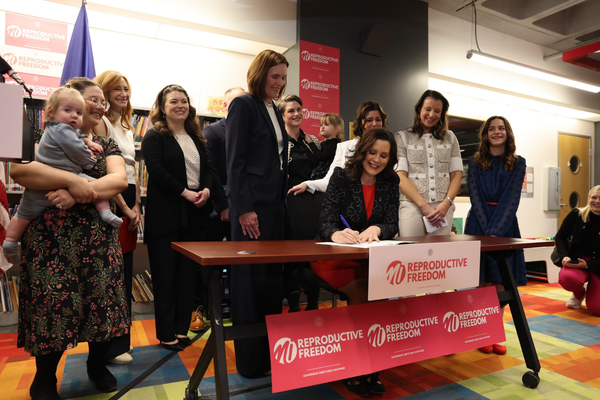U.S. Politics: Who’s the Pro-Family Party Now?
For decades, the Republican Party has laid claim to “family” and “freedom.” That’s changing.

The Persistent is available as a newsletter. Sign up here to get it delivered to your inbox.
At last week’s presidential debate between Kamala Harris and Donald Trump only one candidate used the words “families” and “freedom.”
Kamala Harris.
Over the course of the 90-minute event, the Democratic nominee invoked the word “freedom” three times in reference to reproductive autonomy.
And she invoked the word “families” (or “family”) nine times, most often in the context of a proposed $6,000 tax credit for families with newborns; and once to explain the multiple barriers—including threats to IVF access and reproductive health restrictions—faced by people trying to grow their family.
Donald Trump? He neither uttered the word “freedom” nor described what he would do for “families.”
It’s a razor-sharp example of the Harris campaign’s intentional and careful reclaiming and repurposing of words that for years seemed to belong to Republican politicians.
So-Called 'Family Values'
It was Ronald Reagan who, in the 1980s, claimed “freedom” and “family values” for the Republican party, though his administration offered neither.
Reagan vilified unmarried Black mothers as “welfare queens” to justify cuts to safety net spending and impose onerous conditions on receipt of public assistance, making it much harder for families with low incomes to survive.
Then there was the abortion issue.





